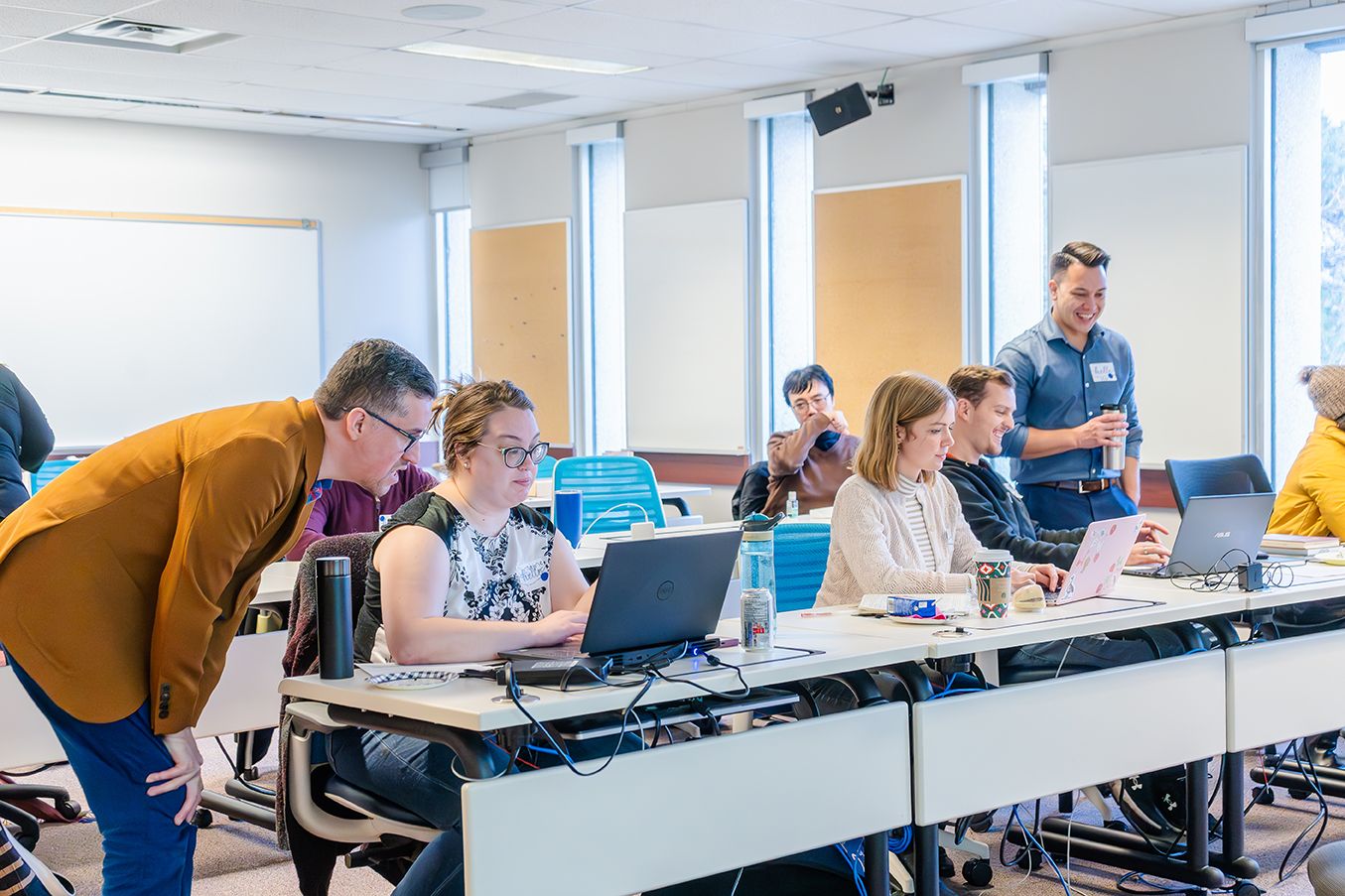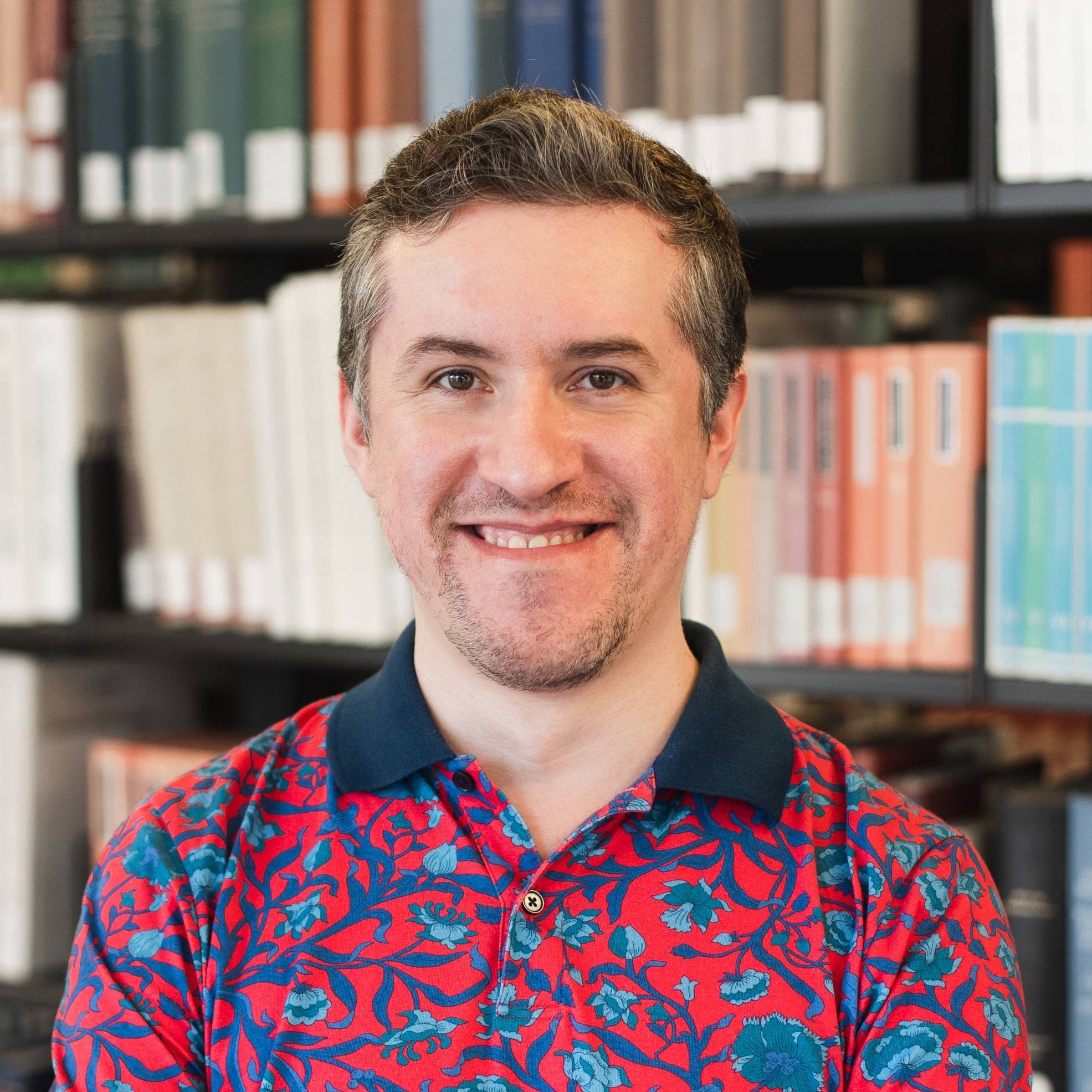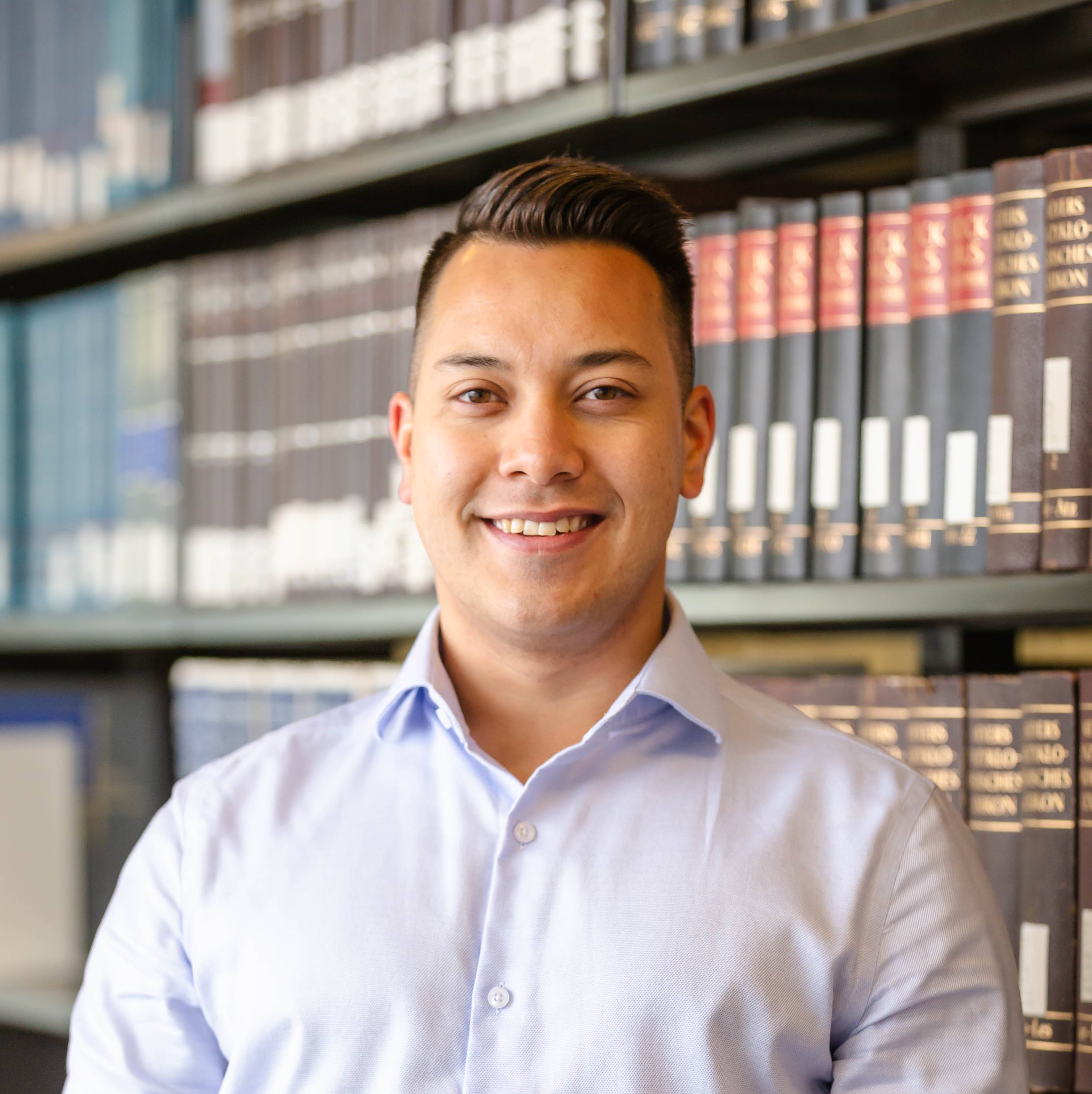USING DIGITAL TOOLS TO UNLOCK PRIMARY SOURCES:
HISTORY LANGUAGE WORKSHOP FOR PHD STUDENTS
Digital scholarship is a broad term used to describe the intersection of scholarship and technology. At its core is collaboration and finding new ways to support the learning and research process, both concepts that align with Library values. Through the work of Antonio Muñoz Gómez, digital scholarship librarian, the Library is investigating the needs of students, researchers and instructors, and developing recommendations for services and programs where the Library can provide unique and valuable expertise and tools. Those needs can vary depending on the discipline, so taking on specific projects can help reveal what support is needed on campus.
Enter Dr. Susan Roy, chair of the graduate history program, who approached Mike Chee, history liaison librarian, with an opportunity to review the language requirement test for PhD candidates. Accessing primary texts in their original form can be crucial to true understanding but language requirements can also be a significant barrier to scholars. The question then became, could digital scholarship tools be helpful when engaging with texts in other languages?
While there is no one-size-fits-all answer to this question, Muñoz Gómez and Chee were excited by the opportunity to explore what is possible alongside history students and faculty on campus. A history language workshop was planned for fall 2023, welcoming all graduate students and faculty to participate in this two-part event to learn together how digital tools can support their research workflows.
In preparation for the workshop, Chee and Muñoz Gómez developed specific examples using optical character recognition (OCR) technology and the Python programming language to show how students can create a personalized digital research library that they can then apply machine translation to in a way that fits within the typical historian workflow. “We know using digital tools can be intimidating for some so we really wanted the workshop to showcase the possibilities, and for students and faculty to understand they don’t have to be expert coders to use digital tools and see results,” says Chee and Muñoz Gómez.
While the examples Chee and Muñoz Gómez developed were straightforward, adding digital tools to the research process does require further thought and consideration. The workshop included an introduction to research data management (RDM) and highlighted the importance of planning your approach and workflows to be able to tap into the power of digital tools. Small shifts can have big impacts when engaging technology.

There are limitations, however. The group also had conversations around the ethics of using technology in this work. Technology itself is not neutral so considerations around what can be lost in translation are important and nuanced. The more confidence scholars have in using technology, the better their understanding of its limitations will be.
Opportunities like the history language workshop provide space for that confidence to grow and help develop the relationship between researchers and the Library, which is well-placed to provide support and resources as scholars seek out digital tools. "The history language workshop was a uniquely informative and rewarding experience. The skills we covered and learned in this workshop are directly applicable to history reading, writing and researching," says Ben Smith, History PhD student.
While this is just one specific example of how digital scholarship tools can support learning and research, what Chee and Muñoz Gómez learned through this experience opens new avenues for further exploration and potentially broader applications across disciplines.

Antonio Muñoz Gómez,
digital scholarship librarian
